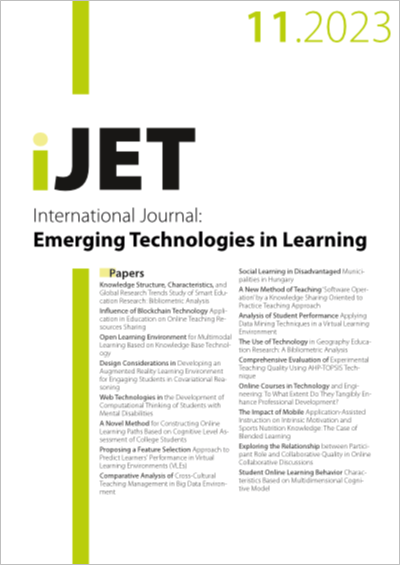Knowledge Structure, Characteristics, and Global Research Trends Study of Smart Education Research: Bibliometric Analysis
DOI:
https://doi.org/10.3991/ijet.v18i11.39313Keywords:
Smart Education, Knowledge Structure, Characteristics, Global Research TrendsAbstract
This research aims to explain the knowledge structure, characteristics, and global trends of smart education research from the past to the present. This article is a bibliometric study with open-source tools, such as R-Studio, the biblioshiny package, and VOSviewer, to analyze the data and help visualize the network for presenting knowledge structure, characteristics, and global research trends, such as the production of annual publications, influential resources, most relevant or prolific authors, publication networks that co-citations, authors’ international collaboration, the scientific production of each country or each institution, and future trends. This study examined 1,580 articles published in international journals in the Scopus database on smart education from 1986 to 2022. The most annual scientific production will be in 2021, at 296 articles. The most relevant sources are Smart Innovation, Systems and Technologies. The most influential author is Gwo-Jen Hwang. The most cited article has 293 citations. Trend topics that began to gain attention from 2021 – the present is Artificial Intelligence, COVID-19 and Smart Education, Artificial Intelligence, Internet of Things in Motor Themes will be developed further and remain the dominant topics in this research field. This article summarizes an overview, knowledge structure, characteristics, and global research trends of smart education research.
Downloads
Published
How to Cite
Issue
Section
License
Copyright (c) 2023 Phuttaruksa Jetsadanuruk, Wirapong Chansanam

This work is licensed under a Creative Commons Attribution 4.0 International License.


